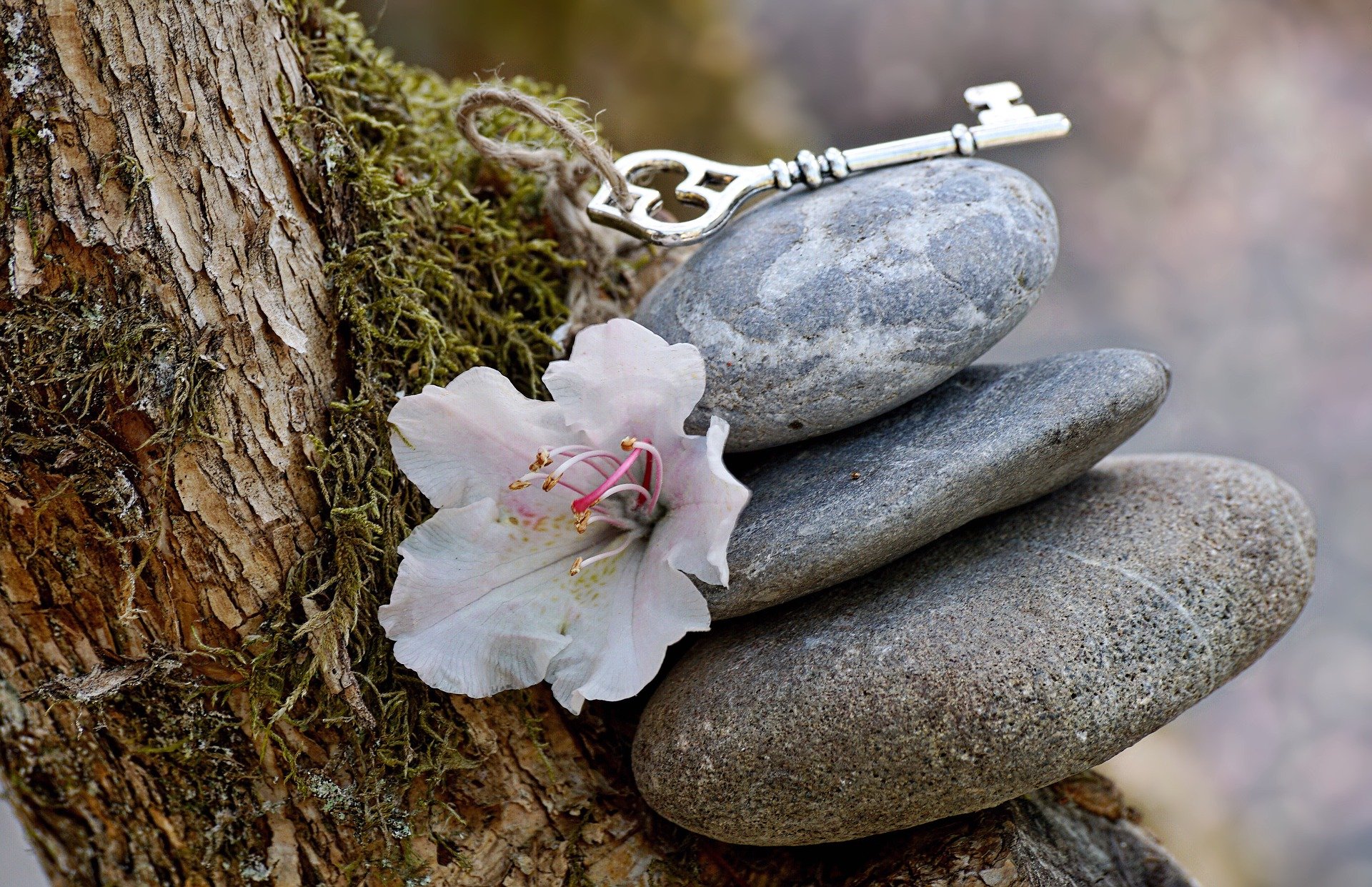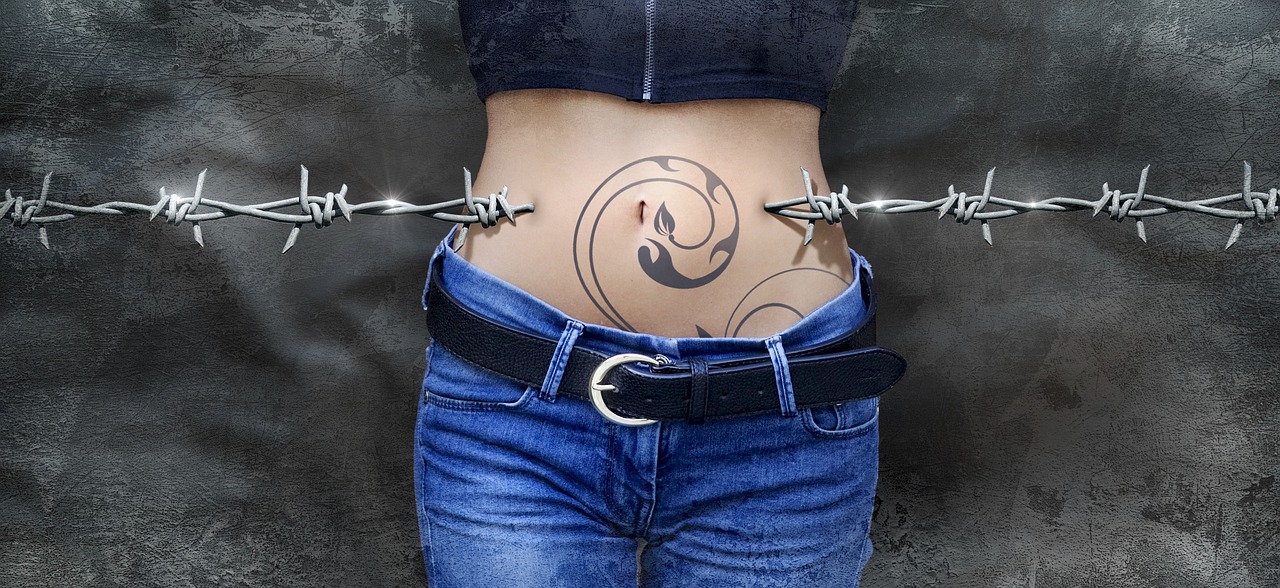A person addresses you. You don’t know that person that well. You got that gut feeling…
It doesn’t matter if the feeling is good or bad. The real issue is: can you trust your gut feeling?
Is it fear or intuition talking?
Let’s go through this together…
Contents:
What Is Gut Feeling?
As Fear Taken Charge?
Intuition: the 6th Sense
Sharpen Your Intuition: Turn It Into A More Reliable Asset
1. What Is Gut Feeling?
What is gut feeling? I used to literally under-estimate the biological detrits like s*hit stuff until I learn two things about the gut:
- One: That 70% to 80% of our immune system resides in the gut (the good balance between good and bad bacteria)
- Two: That your gut has neurons. The network of nerves and neurotransmitters is actually is called the enteric nervous. This neurons network is a system that exists along the entire digestive tract – from the esophagus, through the stomach and intestines, and down to the anus.
That gives you a whole new perspective of things, right?
Because the healthier the gut, the better the mood – yes it also interferes with dopamine and serotonin production. These days scientists consider the gut a second brain.
The gut is not the place where conscious thought and decision-making happen. The gut contains 100 million neurons, a large number of neurotransmitters: it is such fast communication with the brain, that this can not be minimized thinking that intestines are just to process food.
Psychologists believe that gut feelings are fast mental operations, kind of a mental matching game.
When facing a particular situation, the brain supposedly searches all its stored files very quickly, picks the best analog from the past, and ascribes a meaning to the situation it is presented with.
Gut feeling is a perception of a situation not based on facts. This “immediate situation understanding” is filled with emotion: it is felt. Literal communication gut-brain and the actual signal coming from the brain.
Your gut may be trying to inform you as:
- You are in good company
- You are in danger,
- You are sick or something’s wrong
- You should take this risk and do it
- You are being manipulated
The next time you receive feedback from your gut: think again before you ignore it.
On the other hand, gut feeling is a double-edged sword: your brain might be tricking you. You might just be projecting.
Depending on how well you process your own emotions you may experience gut- feeling with a person you’ve just met … And your gut feeling might just be…a projection that starts and ends in you: the other person got nothing to do with it.
An over-optimistic projection example is, for instance, that you’re so eager to find love and have this idealization or fantasy, that you make a collage on the first person you meet thinking that “is the one”.
Or, in case of a negative projection of past trauma (someone who deceived you, for example): and you go dump-throwing all that un-processed feelings on the next person you meet, as if you were already guilty of something. Which is rather unfair, of course.
There’s a possibility of that, my friend might be just fear. Fear taking over. and talking loud.
2. As Fear Taken Charge?

When fear takes charge, you kind of disappear within yourself.
You don’t rationalize: fear doesn’t let you.
You’re not deciding: fear is doing it for you.
Your response, to whatever you perceive as a threat, is a consequence of this auto-pilot program that we all have installed: the fight-flight-freeze survival instinct.
This fight-flight-freeze instinct was developed as men were primitive cavemen. And it is a mechanism of survival, an alarm system that we all have when facing some dangerous or threatening situation: we switch the system on and decide whether to fight, flight or freeze. And according to that fast decision, your body produces a cocktail of hormones to get you ready either to fight, run away as fast as you can, or freeze.
As a consequence of this cocktail of stress hormones, your body has a physiological response: heart beats faster than normal, pushing blood to the muscles, pulse rate and blood pressure go up, breath happens more rapidly, extra oxygen is sent to the brain, increasing alertness.
Sight, hearing, and other senses become sharper.
These days we don’t have to face a lion on the next corner, but the auto-pilot is still here and the system is triggered. Is extremely punishing for your body and mental health when you are consistently exposed to your own stress hormones.
Fear is a friend. Fear alerts us to the presence of danger or the threat of harm, whether that danger is physical or psychological.
It is a friend, if the alarm is set for real danger: it keeps you safe.
Otherwise is an alarm that is always getting triggered for things that aren’t really dangerous (is your mind that perceives it that way): then you have an alarm that it’s killing you slowly because it makes you fight, run away, or freeze, when there’s no reason for it.
People that suffer from anxiety, might experience gut feeling that is actually fear that was triggered from some imagined danger, not necessarily a real one. So many decisions are made based on false assumptions.
Anxiety, panic attacks, post-traumatic disorder (PTSD) are symptoms that fear is over-ruling your decisions and might even be a snow-ball of questionable decisions, with a negative impact on your life. You might need professional treatment if such is the case.
Psychological treatment might be of some help to re-signify whatever it is that triggers your fears.
Most of our fears are learned during childhood: they are in the program. Other fears are learned along the way of growing. But the program can be changed if fears are unfounded.
Having fear of fire is a good thing: keeps you from burning yourself.
Having fear of failure might be a good thing: if it means you are conscious that you have to put up your best, face and overcome obstacles you might encounter in the way and know you are capable to deal with whatever outcome it might result.
Having fear of failure might be a bad thing. If it stops you from even start something just because it gets you anxious thinking of a hypothetical failure based on some imagined obstacle that you imagine you couldn’t possibly overcome in a "future to come"…
Talking therapy and/or support groups might help you deconstruct some installed fears that prevent you from living a fulfilling life.
Here are some tips to go up that hill, with professional help or not:
- Face your fear if you can. Give it a name, recognize the existence of “the thing”. Face it if you can.
- Know yourself: wear no masks with yourself. Lying is not a good thing. But lie to yourself: normally results in disaster.
Shut the voice of others (mom, dad, friends, all those manipulating voices that you give credit, that are always whispering things in your head). Shut them off for some moments, daily.
Ask yourself – and answer: what are you secretly proud of yourself? What are you secretly ashamed of? What are your strengths? What are your weaknesses? What do you really want to achieve? What can you do to improve on yourself and undertake?
- Moderate or avoid the use of psychoactive substances: because they alter your perception of things. And your perception of things will determine your actions/reactions. Your action/decisions will determine your reality.
- Your spirituality matters, regardless if you are religious or not. Thinking of you as a spiritual being gives density and consistency to you as a human being. Acknowledge your values. You have them, otherwise, you wouldn’t be reading this article. Not up to here. Acknowledge your values: they are boundaries, your mind fortress, to prevent mind invaders: narcissists. Society is prone to them.
If your fears are dismantled, recognized for what they are, if they no longer have masks: then it’s possible that you can trust your intuition.
3. Intuition: The 6th Sense

Intuition or the 6th sense is kind of a poor parent: few people want to talk about it. Because has been so despised throughout centuries, especially in western cultures where analytic thinking has been promoted.
Actually, intuition is very similar to gut feelings, only they might not come with the emotional feeling on the gut.
Intuition is the ability to understand something instinctively, without the need for conscious reasoning.
And all that comes from the same place: your brain and the way your mind processes experiences and emotions.
Neuroscientist acknowledges today that emotions are not just dumb responses that always need to be ignored.
They eventually need to be regulated: because they could be a construction, implantation that conditions you to a habitual response (not necessarily a good response): all due to the way the information was stored and emotion was attached to.
Intuitive thinking is described as automatic, fast, and subconscious.
Analytic thinking, on the other hand, is slow, logical, conscious, and deliberate.
If your intuition is not poisoned with anxiety (useless, counter-producing fear), you should use it along with rational thinking, when facing a challenging decision. Intuitive and rational thinking should occur together.
Life is not just made of all well-intended people encounters. And even if they are: there’s nothing that can prove that their opinion about your life should be more important than yours, in what concerns to decision-making, that might have a direct impact in your life.
Intuition (if not poisoned with anxiety and unproductive fear) may offer guidance in those critical decision moments and serve you like a North Star.
When facing some struggle in a decision to make, ask yourself:
“How will I feel with myself if I do this?”
This will shift your attention to you: to what your personal answer is, for your very personal intentions. In opposition, when your attention is focused on the outside, when you overvalue others' opinions you’re putting the focus on the external: “A” said you “should act like” or what will “B think of "you…Other’s opinion isn’t necessarily the right thing for you: they are not you, they don’t live in your head, they don’t feel your emotions from your inside.
It doesn’t mean you shouldn’t listen to others. It just means the last word for your decision must be yours. Based on your rational thinking. Considering your intuition. Preferably: not poisoned, if possible.
4. Sharpen Your Intuition, Turn It Into A More Reliable Asset
How to sharpen your intuition, then?
Well, the best way is meditation: it helps you develop that ultimate intimacy with yourself.
To develop your intuition, so you can trust it as an asset, as a skill, try improving in this:
- Meditate: Find time to be silent and still. When you meditate is easier to communicate with your inner calls. Is easier to separate your inner voice from implantations and external voices.
- Use the 5 senses: you have five senses. Which are entrances of data from the outside world straight into your brain. Use them all, even when doing something simple like drinking coffee. Exercise All Five Senses
- Pay attention to your body signals: listen to your body. It always gives signs. This isn’t about impulses, or being a servant to them. It's about listening to your body signal and learn. What makes you happy for days, what bothers the guts for weeks. What are those urgencies that you should restraint... Just listen to your body and act in accordance with it.
- Pay attention to your dreams. Dreams are signs of what lives in your unconscious mind. The unconscious mind is the program that you have “installed” and rules a large percentage of your decisions, even when you don’t realize it.
If there’s a change you wanna make, of some decision pattern you've identified. It's in the subconscious mind that you have to "plant" it. As an adult, if there's some habit you want to implant: it happens by conscient repetition. Until it becomes an auto-pilot act, engraved in the sub-conscient.
- Spend time in nature: nature by itself helps reduce the stress effects. The less stressed you are, the more reliable your intuitions will be. Intuition comes from a quiet and calm place, with gentle firmness. They don’t come from anxiety or noise inside of 500 people chatting in your head.
- Do Breathwork: stimulates the pineal gland which is responsible for your sleeping cycles and its activity affects your moods. The less prone you are to have mood disorders, the healthier is your perception of things, the more reliable is your intuition. The better you sleep, the better you decide.
- Be deliberate about the people you hang on to: some people drain your energy, suck it all off, add noise, and make it more difficult to hear what your intuition wants to say. Surround yourself with people that empower you and keep your distance from those who drain and dry you.
- Support your intuition: don’t call yourself crazy when you get an intuitive hunch.
If your intuition is clean, sharpened, and supported by rational thought: you’ll feel more confident in your decisions.
Listening to your intuition may prevent you from getting into unhealthy toxic relationships and situations of unnecessary stress.

Gutsy Hugs!
References:
https://www.health.harvard.edu/staying-healthy/understanding-the-stress-response
https://www.verywellmind.com/the-psychology-of-fear-2671696
https://www.rediff.com/news/2007/may/08gut.htm
https://www.mentalhealth.org.uk/publications/overcome-fear-anxiety
https://www.joinonelove.org/learn/yes-trust-gut-heres/
https://www.mindbodygreen.com/0-17693/18-ways-to-strengthen-your-intuition.html

"In nature, nothing is lost, nothing is created, everything is transformed"
Antoine Lavoisier, 1789
The Law of the Conservation of Mass
Songs in this article:
